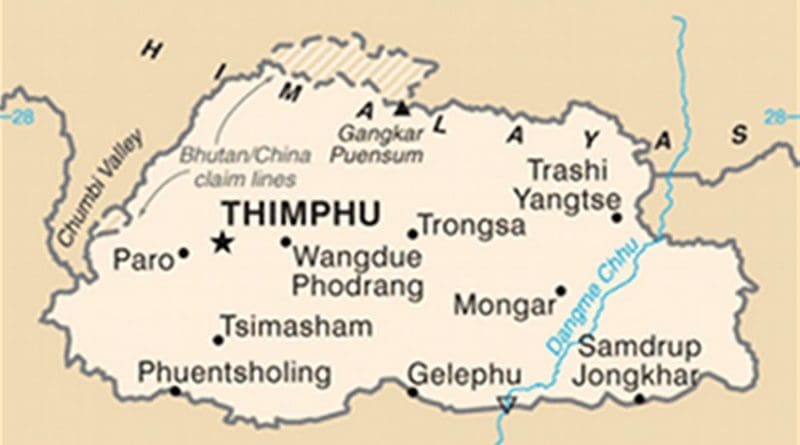Bhutan: Local Government Elections Strengthening Democracy – Analysis
By SAAG
By Dr. S. Chandrasekharan
It is eight years since democracy was introduced in Bhutan. It has already had two elections at the national level, with one resulting in a change of government and two elections to the National Council. Elections were peaceful and orderly.
In the second week of May the second phase of local government elections took place successfully. Over 3391 candidates contested of whom 151 were graduates. A total of 402,149 voted in the elections- that came to 55.8 percent of the total electorate. This was creditable considering the fact that it was elections only to the local bodies. The only fault if any was that not many women candidates contested and of these only a few were elected.
For democracy to get strengthened, it is absolutely necessary to empower the lowest bodies in the government and it is very creditable for Bhutan to have conducted it very successfully. One should compare with what is happening to Nepal where for sixteen years no elections to the village or regional level have been conducted and the politicians are still fighting over the demarcation of individual units!
The second important event was the bye elections to the Thimpu North Constituency. This constituency was considered to be the stronghold of the DPT, the present opposition party and yet the ruling party, the PDP swept the polls. The PDP candidate Tshering won by a huge margin and picked up 75.5 percent of the votes as against the DPT candidate Kessang Wangmu who got only 24.5 percent of the votes.
This election of PDP Candidate in a DPT stronghold is significant in many respects. First it is a reflection of the good work being done by the present Tobgay led PDP government. Second it could be the precursor to the third National Elections that is coming in 2018. Third, though the electioneering was intense, it was peaceful throughout- there were no controversies, no mudslinging etc. Four, the election of the candidate was on performance of the ruling party- a reflection on the intelligence of the voters. But the flip side is that the opposition party will have to work harder and should not allow the ruling party to sweep the polls in future. This is in the interest of democracy itself in Bhutan.
Credit goes to the King Gyalpo V too. The winning candidate Tshering pointed out that the people had rewarded his party for serving King, Country and the People- (in that order)!
The draft for the 12th five-year Plan has just been published. Compared to the 11th plan, this appears to be more ambitious with an outlay of over 332 billion Nu as against 217 in the previous plan. One important feature of this plan is that more investment is being planned for “current expenditure” than for “capital expenditure”- a departure from the previous plans where investments were more or less equal.
The key areas targeted in the plan includes- macro economic stability, reducing poverty inequality, improvement in the quality of education and improvement of skills, gender equality and finally decentralization and strengthening of democracy.
One sour note that should be made is that the present government is seriously considering the revival of the “Lottery Schemes” in a big way to make some 30 million Nu each year. Lottery schemes held earlier resulted in “scams’ that are inevitable when huge sums are involved. Secondly is there no way to earn this 30 million by other legitimate means? The Tobgay government should seriously consider all aspects being going ahead.

